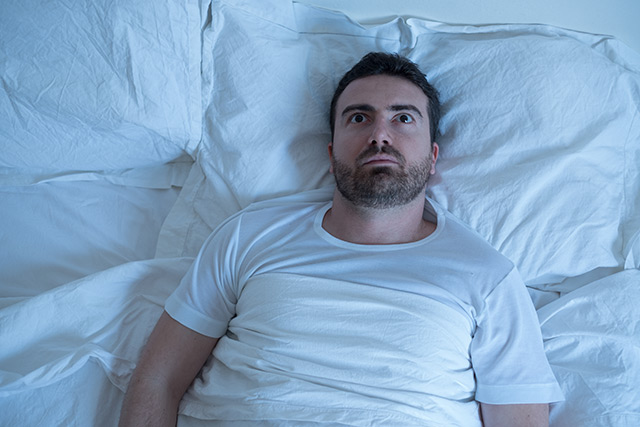Screen time before bed worsens insomnia, cuts sleep by 24 minutes per hour, study finds
04/02/2025 / By Cassie B.

- Screen time before bed cuts sleep by 24 minutes per hour and raises insomnia risk by 59%, according to a Norwegian study of 45,000 young adults.
- All screen activities — gaming, streaming, emails — equally harm sleep quality, debunking the myth that only social media disrupts rest.
- Blue light and mental overstimulation delay bedtime and suppress melatonin, worsening sleep regardless of content type.
- Experts recommend a 30-minute screen-free buffer before bed, night mode, and replacing devices with calming rituals.
- Chronic sleep loss from screens is tied to long-term health risks, including diabetes, depression, and heart disease.
For millions of Americans, scrolling through social media, binge-watching shows, or answering emails in bed has become a nightly ritual. But new research from Norway confirms what sleep experts have long warned: Every hour spent staring at a screen before sleep slashes rest by 24 minutes and spikes insomnia risk by nearly 60%.
Published in Frontiers in Psychiatry, the study of 45,000 young adults delivers a wake-up call about the consequences of our tech-dependent bedtime habits and challenges the assumption that only social media disrupts sleep.
Led by Dr. Børge Sivertsen of the Norwegian Institute of Public Health, the research reveals that all screen activities — whether gaming, streaming, or reading emails — equally erode sleep quality.
“Surprisingly, we found that it’s the overall screen time in bed that matters most, not the type of activity,” Sivertsen said.
The findings add weight to growing concerns that constant digital stimulation is undermining fundamental health pillars like restorative sleep, with ripple effects for mental sharpness, heart health, and immunity.
A direct link between screens and sleeplessness
The study analyzed surveys from Norwegian students aged 18 to 28 tracking their screen habits and sleep patterns. The study showed that for each hour of screen time, there was a 59% higher risk of insomnia, defined as struggling to fall or stay asleep for three or more nights a week over a period of three months or longer. Additionally, every hour spent on devices cost participants 24 fewer minutes of sleep each night, which means that two hours of scrolling could result in nearly an hour of lost rest. Importantly, no activity was found to be “safe” as social media, videos, and even “relaxing” podcasts equally disrupted sleep.
“This finding was somewhat surprising and challenges the idea that social media use is uniquely disruptive to sleep,” Sivertsen noted. The real culprit? The cumulative effect of screen engagement delaying bedtime, overstimulating the brain, and suppressing melatonin via blue light — a conclusion echoed by U.S. experts.
Why screens and sleep don’t mix
Dr. Vishesh Kapur, a sleep specialist at the University of Washington, explains: “Screen time at bedtime activates the mind… If the individual is consuming content that is very interesting, they may delay going to sleep, or if the content is disturbing or anxiety-inducing, this could make it hard to fall asleep.” Blue light compounds the problem by blocking melatonin, the hormone that regulates sleep cycles.
The study’s observational design can’t prove causation, but experts say the correlation is undeniable.
While quitting screens cold turkey may be unrealistic, researchers and clinicians recommend a few practical strategies. First, follow the 30-minute rule by powering down devices at least 30 minutes before bed, according to CDC guidelines. Additionally, it’s helpful to keep screens out of the bedroom altogether. To minimize blue light exposure, reduce screen brightness and enable “night mode.” Lastly, consider swapping scrolling for soothing rituals such as reading a book, stretching, or listening to calming music.
The study underscores a broader societal challenge: As work, socializing, and entertainment migrate online, setting boundaries with technology grows harder—yet more urgent. “It’s not about quitting screens entirely,” Sivertsen stresses. “It’s about being mindful of how and when we use them, especially at night.”
With chronic sleep deprivation linked to diabetes, depression, and cardiovascular disease, the research is a clarion call to reassess nighttime habits. Screens in bed steal sleep and health, and in an era of endless digital demands, reclaiming rest may require something radical: putting the phone down.
Sources for this article include:
Submit a correction >>
Tagged Under:
blue light, computing, Dangerous, future tech, Glitch, health science, information technology, insomnia, inventions, Mind, mind body science, real investigations, research, screen time, sleep, Smartphones, Social media, truth
This article may contain statements that reflect the opinion of the author





















